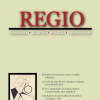Solidarity with Displaced People from Ukraine in Hungary
Zakariás Ildikó, Feischmidt Margit, Gerő Márton, Morauszki András, Zentai Violetta és Zsigmond Csilla Solidarity with Displaced People from Ukraine in Hungary: Attitudes and Practices című tanulmánya a Journal of International Migration and Integration folyóiratban jelent meg.
Absztrakt
The paper explores the attitudes of Hungarian civil society in the context of the war against Ukraine, the active agents of solidarity, and the general social atmosphere associated with welcoming displaced people. Based on a population survey from the summer of 2022, the paper draws an ambivalent picture. First, it highlights the exceptional momentum and mobilising power of civil solidarity both in terms of practical involvement and expressed attitudes. At the same time, the results also reveal the limits and vulnerabilities of civil solidarity—namely, its exposure to populist political discourses which cherish or condemn moral economies of assistance according to vested interests, as well as its embeddedness in a neoliberal reliance on citizens’ individual resources (disposable time and material means), and the salient inequalities in sharing the burdens of humanitarian support. All this reflects that the consensus and relative evenness of solidarity attitudes at the time of our survey were unevenly translated into practical help, burdening those already heavily charged with care responsibilities. With this finding, we underline the importance of exploring solidarity as a complex relationship of attitudes and practices; also, we highlight the need to include the perspectives of care in inquiries of the population’s attitude towards immigrant groups and categories. Our results are drawn from the application of multi-dimensional logistic regression models based on data from a statistical survey involving 1000 respondents representative of Hungary’s adult population.



























